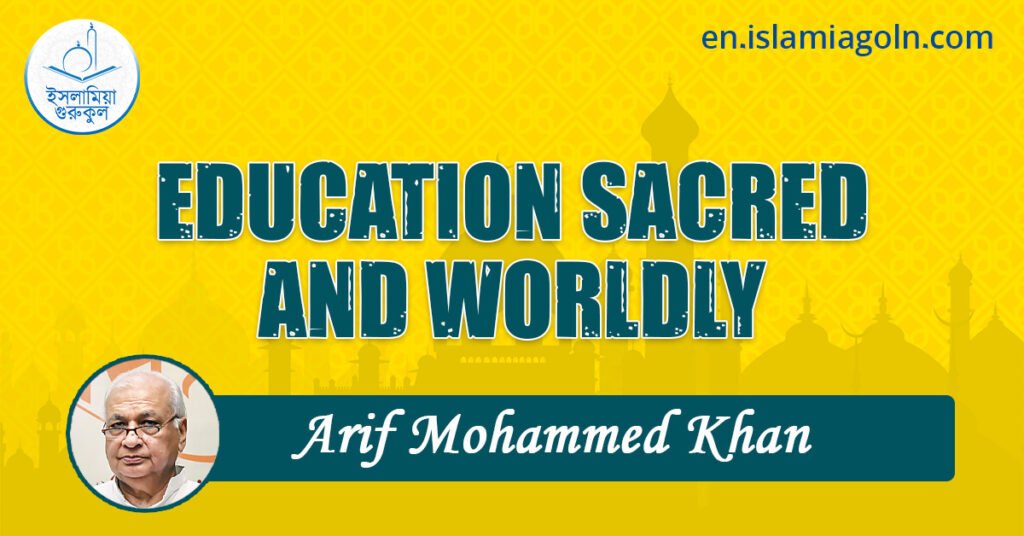Today we will discuss about EDUCATION SACRED AND WORLDLY
EDUCATION SACRED AND WORLDLY
The proposed Madrasa Board has run into serious trouble. Sensing T cleric opposition, the Human Resource Development Minister declared on 3 October 2009. that the government intends not to interfere in the religious teaching and assured to scrap the Bill if the Muslim community does not want it. However, the assurance failed to stop the tide of critiques appearing in the Urdu press. The move has been described as part of a larger conspiracy to deprive Muslims of their religious identity by sabotaging Islamic education. The opposition is expectedly being led by Deoband and Nadwa – the two premier Madrasas of India and enjoys support of many prominent Muslims.
According to the provisions of the proposed Bill, it aims at standardisation of the non-theological aspects of Madrasa education and promotion of education in non-theological subjects without interfering in the theological content. The important feature of the Bill is that it does not make it mandatory for the Madrasas to get themselves registered or affiliated; instead, it provides the option for any Madrasa after its affiliation to go out of the fold of the Board if it so desires.
With this scheme in place. Madrasas like Deoband and Nadwa can continue with their present arrangement but smaller Madrasas running on shoestring budget can benefit from the constitution of Madrasa Board. With freedom to decide the syllabus of religious education, they can. become medium of providing both, religious and non-religious school level education to their pupils, who can later make a choice of discipline for higher studies based on their preference and aptitude.
Some leading Deoband clerics have invoked ‘Usule Hashtagana (Eight Guiding Principles) penned by Maulana Qasim Nanotvi, the founder of Deoband, for the conduct of Madrasa affairs. In one of the principle it has been emphasised that ‘there is great good and blessing for a Madrasa to be totally independent of any need of government help or assistance’.
On the other hand, if we go through the proceedings of annual sessions of Jamiatul Ulema a body of Islamic scholars dominated by Deoband, it gives some idea why the Ulemas were skeptic of receiving government help. In 1955, at its Calcutta session Jamiat said:
“During British rule the Ulema were opposed to receiving any help from the government to run their institutions. But now India has its own national government, the Ulema must cooperate with it and participate in its programmes. The acceptance of this principle would necessarily require the Madrasas to reform their syllabus and include modern subjects. This step will equip the Madrasa graduates with qualifications so necessary to participate in national affairs.”
Sheikhul Islam Maulana Husain Ahmad Madni in his presidential address emphasised the need to spread the network of educational institutions and warned:
It is not right to keep religious education divorced from modem education. The interest of the community demands that we include the syllabus of primary schools with religious education to produce graduates fully competent to participate in modern day affairs. Our efforts shall help the educational programme of the government and the government will be duty-bound to extend cooperation by according equal facilities and status to our institutions.
Maulana concluded his speech with the exhortation, ‘education must be broad enough to ensure that a Muslim becomes not simply an adornment of the mosque but shines equally in secular domain as a man of truthful intent and upright character’ Madrasa Board is not important but will the Madrasa authorities heed his advice and devise a new comprehensive system that equally values all knowledge and divides it not as Islamic and non-Islamic’?
See more:

